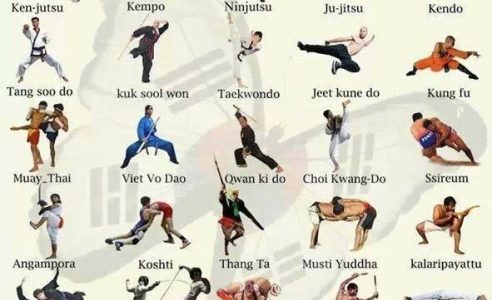Conventional Martial Arts Vs. Modern Combat Sports: Understanding The Key Differences
Conventional Martial Arts Vs. Modern Combat Sports: Understanding The Key Differences
Blog Article
Material Created By-Ware Snedker
When you consider martial arts, do you lean more toward the conventional practices or the modern-day battle sports? Each path supplies distinct benefits and experiences, shaped by their philosophies and training approaches. Standard martial arts stress personal development and self-control, while contemporary combat sports concentrate on competitors and efficiency. Recognizing click this site can direct you in picking the best method for your journey. However how do these differences manifest in training and philosophy?
The Ideology and Background Behind Traditional Martial arts
While lots of people link martial arts with physical fight, the ideology and background behind standard martial arts run much deeper. You'll locate that these techniques emphasize individual development, technique, and respect.
Originating from ancient techniques, standard martial arts were typically established for Self-Defense and spiritual development. They embody concepts such as balance, harmony, and self-constraint, directing professionals past simple battling skills.
As you train, you'll not just learn techniques but also gain insights right into the society and worths that shaped these arts. The rituals and customs, commonly passed down via generations, promote a sense of area and belonging.
The Affordable Nature of Modern Battle Sports
Modern battle sporting activities have actually changed the landscape of martial arts right into a very competitive field, where professional athletes take on in an examination of ability, method, and endurance.
You'll notice that competitions are often arranged with rigorous policies and regulations, guaranteeing fair play and safety. These occasions draw in huge target markets, sustaining the excitement and strength of matchups.
Athletes train carefully, not just for physical expertise yet additionally for psychological sturdiness, recognizing that every detail counts in the ring. The adrenaline rush throughout competitors is apparent, as competitors press their limits to assert success.
https://hectoriescn.newbigblog.com/40600149/come-along-as-we-check-out-the-martial-arts-design-that-suits-you-best-while-revealing-the-concealed-abilities-you-possess appreciate the athleticism and artistry entailed, making contemporary battle sporting activities a thrilling spectacle that remains to advance and astound enthusiasts all over the world.
Training Methods and Methods: A Relative Analysis
The affordable atmosphere of modern combat sporting activities needs cutting-edge training techniques that differ substantially from standard martial arts.
In contemporary training, you'll concentrate on specific strategies, competing, and conditioning, usually utilizing drills that replicate genuine battle situations. You'll see an emphasis on measurable performance and frequent competition to assess your skills.
In contrast, traditional martial arts focus on forms, katas, and thoughtful trainings, typically highlighting self-control and regard over competition.
Training is typically much less intense and might entail repetitive practice instead of real-time sparring.
While both approaches build ability and fitness, modern-day combat sports supply an extra vibrant and versatile training environment, preparing you for immediate challenges in the ring or cage.
Choose the path that lines up with your goals and rate of interests.
Final thought
In picking between typical martial arts and modern-day battle sporting activities, it really comes down to what you value most. If you're searching for individual development, self-control, and a sense of neighborhood, conventional arts could be your finest fit. However if you flourish on competition and real-time obstacles, modern-day combat sporting activities could be the way to go. Ultimately, both paths offer unique benefits, so it's all about aligning your training with your personal objectives and passions.
